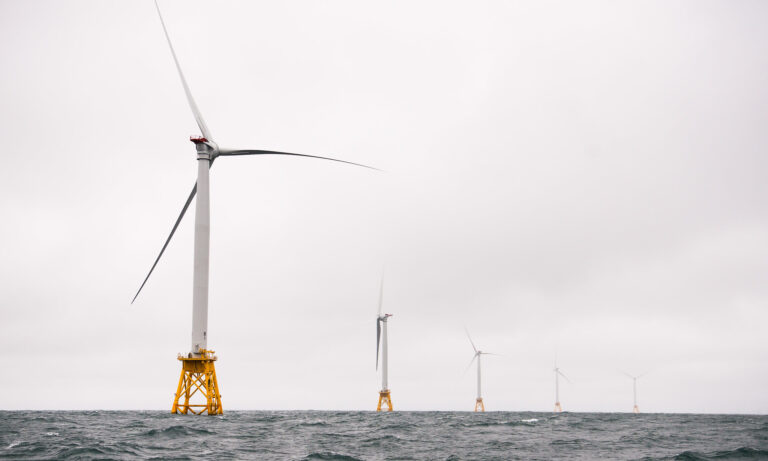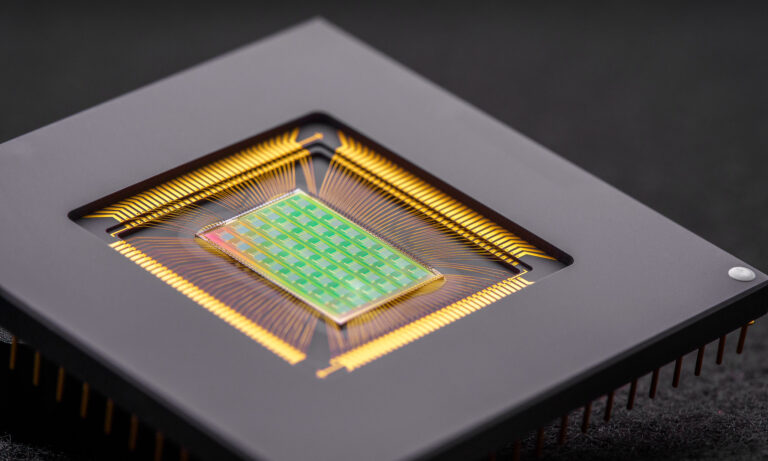The New Italian Government Could Be a Headache for China

The upcoming right-wing coalition in Italy is set to shake up ties with China and Taiwan, partly in a bid to boost the Atlanticism credentials of the likely next prime minister, Georgia Meloni, criticized for ties to fascism and unclear geopolitical positioning.
This article is part of a series from CHOICE focusing on the impact of elections on countries’ China policy as well as a series of articles authored by young, aspiring China scholars under the Future CHOICE initiative.
On September 25, Italy held its widely discussed parliamentary elections. The results confirmed the expectations, bringing to power the right-wing coalition led by the far-right party Brothers of Italy (BOI), which managed to conquer 26 percent of the vote despite its historical ties to fascism.
The new government will most likely be headed by the party leader Giorgia Meloni, who is set to become the first female prime minister of the country. Giorgia Meloni’s political image, crafted around traditional family values and patriotism, contributed to her capturing the support of both center-right and far-right fringes of the electorate. Her share of votes surged from 4 percent in 2018 to 26 percent in 2022, mainly to the detriment of the League.
Italy’s peculiar electoral system, which mixes proportional and non-proportional elements, will give the right bloc a strong majority in the Parliament and therefore a significant leeway in law-making. Managing the differences between the three governing parties will be one of the main challenges when the new government will be officially installed.
“Super Mario’s” Legacy
Former Prime Minister Mario Draghi triggered the elections by resigning in July after losing the coalition’s support. The former ECB governor aligned Italy closely with the EU and the US, making Italy’s voice louder in European politics.
However, with the installment of this right-wing government, Mario Draghi’s strong Euro-Atlantic legacy appears fragile. The clear victory of the Eurosceptic right bloc raises anxiety in the European Union, as it might bring Italy to the path taken by Orbán’s Hungary and further away from Brussels.
The fears stem in part from the recent statements of the other two members of the coalition, Go Italy (center-right) and League (far right), which maintained their pro-Putin stance even after the Russian invasion of Ukraine. In contrast to her allies’ often controversial geopolitical stances, Meloni is trying to reposition herself (and her party) as an “Atlanticist”, supporting close ties with the US and Western European allies. Signaling a hawkish approach towards China seems to be a part of this effort, too.
The leadership of Draghi signaled a turning point in Italy’s policy towards Beijing. In 2021, he utilized the so-called “Golden Power” (a screening mechanism for Foreign Direct Investments) on multiple occasions to protect Italy’s strategic industries. The Draghi government blocked Huawei from expanding its 5G networks in Italy, halted the acquisition of the Italian semiconductor company LPE by Shenzhen Investment Holding, and vetoed the creation of a joint venture between Zhejiang Jingsheng Mechanical and the Hong Kong branch of Applied Materials, a leader in software production for semiconductors. His intervention also involved other sectors, such as in the case of the food company Verisem, which was in talks to be acquired by a Swiss firm largely owned by Chinese state-owned giant Sinochem.
In 2021 Draghi also announced his plan to re-examine the conditions of Italy’s participation in the Belt and Road Initiative, endorsed by the previous ruling coalition of the 5 Star Movement (anti-establishment) and the League. In June this year, shortly before resigning, Draghi also prevented the Chinese company Efort Intelligent Equipment from increasing its shares in the Italian tech leader Robox.
On the issue of China, Meloni seems to walk in the footsteps of the former Prime Minister, maintaining a skeptical attitude and calling for a review of the Belt and Road memorandum signed in 2019. Her outspokenness vis-à-vis Beijing became evident during the pandemic on her Twitter profile, where she criticized the country for human rights issues and lack of respect for data protection – often to discredit rival parties’ political agenda, generally softer towards China. In an interview with Reuters, she promised to fight against Chinese and Russian ambitions in the West and declared that Italy would not be “a weak link” in the Western alliance under her leadership.
Within the BOI party, there seems to be a widespread consensus on approaching China. Deputy Federico Mollicone called Beijing “a new enemy,” on par with states that finance terrorism. Nicola Procaccini, a BOI member of the European Parliament, criticized China’s growing footprint in the strategic industries of the EU, calling for a tougher stance against Beijing. Francesco Torselli, a BOI representative at the Regional Council of Tuscany, denounced the growing number of Chinese enterprises in the area, which constitute unjust competition for Italian smaller businesses. The party’s hawkish stance on China appears to be driven by both the concern for Italian/EU industries, and the opposition to Chinese immigration in the country.
Taiwan Issue Comes to the Fore
Shortly before the elections, Meloni was interviewed by the Taiwanese media outlet Central News Agency, for which she received criticism from the Chinese Embassy in Rome. In the interview, she declared to not be interested in renewing the Belt and Road memorandum after it expires in 2024, calling it the former government’s “big mistake.” Meloni also announced her support for the EU’s “Global Gateway,” an economic plan aimed at fostering infrastructure development, to support countries around the world in countering “Chinese penetration.”
The interview also brought the Taiwan issue back into the Italian political debate. Italy, like every other member of the EU, does not officially recognize the government in Taiwan and maintains only semi-diplomatic relations with Taipei. The issue of Taiwan has to a large extent been ignored by the mainstream center parties despite the recent changes in China policy.
Meloni seems to be interested in filling this political void in the Italian discourse by investing in building relations with Taiwan. The upcoming Prime Minister declared that under her watch, Taiwan will be “an essential concern for Italy” and criticized China’s shows of force against the island country, calling for increased cooperation between Taiwan and Italy. The comment was well received by Taiwanese Foreign Minister Joseph Wu, and the de-facto ambassador of Taiwan in Rome, Andrea Sing-Ying Lee, with whom Meloni had already met in July. In a Twitter post about the meeting with Lee, Meloni addressed him as “ambassador.” On the contrary, China Foreign Ministry spokesperson Wang Wenbin cautioned Italy to abide by the “One-China Principle” and avoid sending “wrong signals” to “Taiwan independence separatist forces.”
A Bumpy Road Ahead
Even though the Brothers of Italy will be the most powerful party in the government, Meloni may have to overcome numerous obstacles in implementing her China-skeptical and Taiwan-friendly approach, coming, first of all, from the right-wing coalition itself.
The League, the second largest party within the bloc with 8.9 percent of votes that is led by Matteo Salvini, has maintained an ambiguous stance towards Beijing. The memorandum on BRI was signed on its watch in 2019. Still, shortly after, Salvini rallied against China and criticized the 5 Star Movement’s decision, even declining to attend a state dinner held in Xi Jinping’s honor. The same year, former League minister Gianmarco Centinaio led the only Italian delegation to ever visit Taiwan, shortly after welcoming Xi Jinping to Rome and declaring Italy’s ties with China as “risk-free”.
The other upcoming coalition party Go Italy’s leader and former prime minister Silvio Berlusconi has generally kept a diffident attitude towards China’s footprint in Italy and Europe. However, his family’s media firm, Mediaset, has significant ties to Huawei, and Berlusconi has previously advocated for stronger commercial ties with China.
Although there appears to be considerable skepticism of China among all three coalition members, the administration of the Brothers of Italy is unlikely to be without difficulties. Divergences and competition between the parties, particularly between Salvini’s League and Meloni, may result in attempts to undermine the BOI policies. Another aspect of divergence between the parties is the choice of the foreign minister. For the time being, it appears that the role will be covered by either Antonio Tajani, put forward by Go Italy, or Elisabetta Belloni, Meloni’s favorite and the head of the Italian secret service. Both the potential ministers have generally kept a diffident attitude towards China.
Domestically, Italian businesses might also not favor Meloni’s China-skeptical policy, which could risk exacerbating Italy’s economic issues and ghastly unemployment rate, currently surpassing 25 percent among young people.
Another obstacle to Meloni’s seeming turn towards Taiwan could be the ideological gap between the Italian leader and the Taiwanese president Tsai Ying-wen, head of the Democratic Progressive Party. Tsai’s policy, characterized by an inclusive attitude towards the LGBTQI+ community and a push toward gender equality stands in stark contrast to Meloni’s conservative politics. The BOI leader, who rooted her electoral campaign in the slogan “God, Homeland, Family,” has been raising fears of reducing access to safe abortion, and worrying LGBTQI+ advocates. Taiwan might also risk reputation damage by getting close to the Meloni government, although it seems to be willing to settle with any allies that could champion its cause.
Another aspect to consider is that despite the increasingly hawkish tones, China-related topics were absent from the party programs of the coalition (save for the League, which mentions Chinese rare earths). This shows that changing Italy’s policy towards China is neither a priority nor a long-term interest for the parties. Still, Meloni’s “Atlanticist” posture might require adopting a tougher stance against China to gain the trust of the US and, to a lesser extent, the EU.
A harsher approach toward Beijing would fit well with Meloni’s idea of “Italy first” and satisfy the part of the electorate threatened by China’s economic competition. Conversely, a friendlier approach towards Taipei would give Meloni the monopoly on a discourse generally untouched by Italian politicians and help improve the standing of the far-right BOI by exploiting the “democracy vs. authoritarianism” narrative. If the coalition manages to overcome the internal differences and maintain a common China-skeptical line, the new government might be motivated to deliver a significant shake-up in Italy-China relations.
Written by
Lucia Gragnani
LuciaGragnaniLucia Gragnani is Junior Researcher at Taiwan NextGen Foundation. She previously studied Chinese at Bologna University and the National Taiwan University in Taipei.


